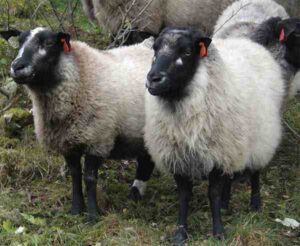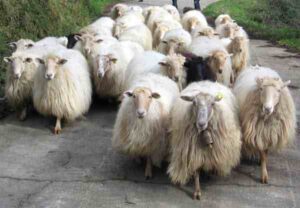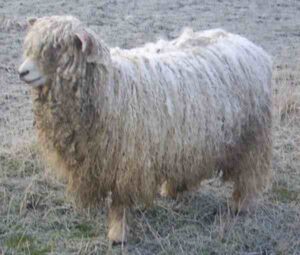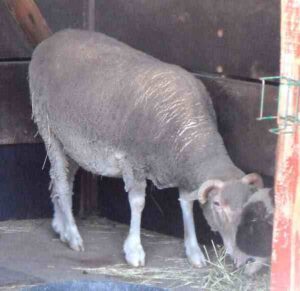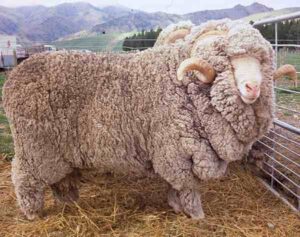The Massese sheep is a breed of domestic sheep from Italy. It is also called Fornese and is kept for both meat and milk production in it’s native area.
The breed is actually from the Alpi Apuane mountains of the province of Massa Carrara, in Tuscany, central Italy.
It s raised throughout most of Tuscany, and also in Umbria, Liguria and Emilia-Romagna. The breed was named probably from the town of Massa.
The Massese sheep has common origins with the other indigenous sheep breeds of the Apennines.
It is one of the 17 autochthonous Italian breeds of sheep for which a genealogical herdbook is kept by the Associazione Nazionale della Pastorizia.
The Associazione Nazionale della Pastorizia is the Italian national association of sheep-breeders. A herdbook for this breed was established in 1971.
otal population of this breed were recorded as 182,690 in 1986, of which 27 percent in Emilia-Romagna and 66 percent were in Tuscany.
And the population was estimated at 55,000 in the year of 2006, of which 16,477 were registered in the herdbook.
And the numbers recorded in the herdbook was 8423 in the year of 2013. Read some more information about this Italian sheep breed below.
Massese Sheep Characteristics
The Massese sheep are small to medium sized animals with lead-grey to black coloration. Their face color is usually black. Both rams and ewes usually have horns, and they show a distinctive roman-nose.
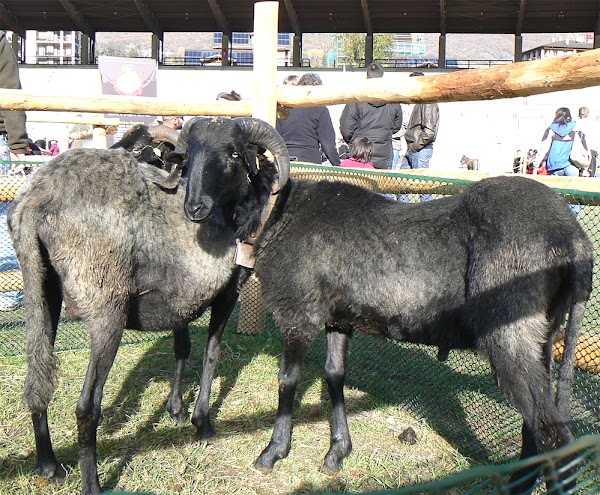
Average body height of the mature rams is around 85 cm, and around 77 cm for the ewes.
Average live body weight of the fully grown rams is around 90 kg. And the mature ewes on average weight around 65 kg. Photo and info from Wikipedia.
Uses
Massese sheep are dual purpose animals. They are raised for both milk and meat production. But they are raised mainly for milk production in it’s native area.
Special Notes
The Massese sheep are active animals. They remain oestrus throughout the year, and normally lamb 3 times every 2 years, with a twinning rate of 135 percent (which allows production of 2 lambs per year).
They are dual purpose animals and raised for both meat and milk production. They are usually slaughtered at a weight of around 10-15 kg. They are raised primarily for milk production in their native area.
Average milk yield of the Massese sheep is about 120 ± 32 litres per lactation for primiparous, and 138 ± 45 l for pluriparous, ewes; it may reach 300–350 l per lactation.
Their milk is of very high quality, on average containing 5.3 percent protein and around 6.2 percent fat. However, review full breed profile of the Massese sheep in the following chart.
| Breed Name | Massese |
| Other Name | Fornese |
| Breed Purpose | Meat and milk |
| Special Notes | Very active animals, well adapted to native climate, remain oestrus throughout the year, usually lamb 3 times every 2 years, dual purpose animals, good for both milk and meat production, good quality milk, meat is also of pretty good quality |
| Breed Size | Medium |
| Weight | 65-90 kg |
| Horns | Yes |
| Climate Tolerance | Native climates |
| Color | Lead-grey to black |
| Rarity | Common |
| Country/Place of Origin | Italy |

